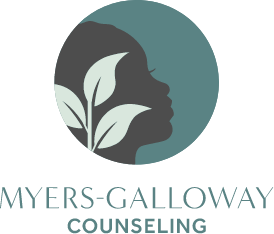How Holistic Health Can Help Black Women Fight Stress & Manage Mental Health
When you have a fever, or lingering cough, you probably go to your family physician or urgent care for some help to manage the symptoms. If you are having tooth sensitivity or pain in your gums, you will probably reach out to your dentist. And if you are struggling to read your computer screen or even drive at night, you’ll want to make an appointment with an optometrist.
It’s natural for us to reach out to professionals for physical ailments that might be bothering us. So why don’t we reach out to mental health professionals when we’re struggling with anxiety or depression? The truth is, some of your physical ailments may actually be related to or caused by anxiety or depression.
What does holistic even mean?
A holistic approach to your health is the belief that the individual parts of your life (social, mental, financial, etc.) are interconnected to your physical well-being. We are complicated beings and addressing individual parts of our health does a disservice to the reality of our lives. Doctors from all backgrounds know that there is a real correlation between the health of your mind and the health of your body. The four pillars of health: nutrition, exercise, relaxation and sleep, isn’t just about taking care of your physical health, they can “also improve your emotional well-being.”
Physical Symptoms of Stress
When you are under stress, your autonomic nervous system kicks in (the system in your body that unconsciously reacts to threats. Think: fight or flight) and physical symptoms can appear such as headaches, nausea, shortness of breath, shakiness, or stomach pain. Perhaps you see a doctor about recurring headaches and they prescribe medication to help you fight the pain. If your headaches are caused by tension, you are only treating the symptom of your stress. Without a holistic approach to your health, your headaches may continue. Getting to the root of your stress and changing how you approach stressful situations (and people) could decrease the amount of headaches overall.
Black Women and Health Disparities
Ongoing stress, however, is not just about nagging headaches and stomach pain (although those can be detrimental enough). Long-term stress can cause significant damage to our bodies as a whole. According to the American Heart Association, “nearly 58% of Black women have high blood pressure compared to about 41% of white and Hispanic women.” And, most troubling, “Black women death rates from high blood pressure-related causes are nearly double that of white women and more than twice the rate for Hispanic women.” Many factors contribute to high blood pressure including diet and alcohol or tobacco use, but there are other factors that contribute to hypertension that you can’t change: genetics. The CDC states that Black people develop high blood pressure more often than other ethnic groups and develop high blood pressure earlier in life.
Addressing Stress Holistically
Maybe you can’t fight genetics, but you can change how you approach your whole health going forward. If you frequently have a racing heart, an upset stomach or struggle to fall asleep at night (or struggle to stay awake during the day!), take out a journal and ask yourself:
Did I have an argument with a family member or co-worker?
Did an event happen at work, or at home, that I can’t stop thinking about?
Have I taken on more tasks and responsibilities than normal?
When was the last time I did something relaxing just for myself?
Is there something from my past (unprocessed grief or trauma) that could be negatively impacting my mental health?
Although it’s possible that headaches, stomach pain and restless nights are a part of an underlying physical condition, if they are happening long-term - to the point where they’re just a “normal part of your life,” it may be time to look at how stress, anxiety and/or depression are affecting your health. Try deep breathing exercises, going for a long walk, and limiting alcohol which can often make these symptoms worse. Do your best to start with making small changes that are sustainable overtime.
Other Holistic ways for Black Women to Address Stress
We know that adding one more task to your to-do list is the last thing you want to do. But integrating healthy habits into your life to decrease stress and support your mind and body doesn’t have to be life-altering. It’s possible you do many of these healthy habits without realizing the benefit to your health!
Listen to uplifting music
Do Yoga or other forms of deep body stretching
Prepare a healthy meal for yourself
Establish a morning or nightly routine that makes your life easier
Develop spiritual practices with a focus on something bigger than you
Reminder: You are the most important task on your to-do list and you cannot pour from an empty cup. Prioritizing your whole health allows you to show up with energy and stamina for everyone around you - but most importantly for yourself - for the long term.
For monthly tips and exercises on living a happier, healthier - more holistic - life, sign up for our free newsletter: The Responsible One.

